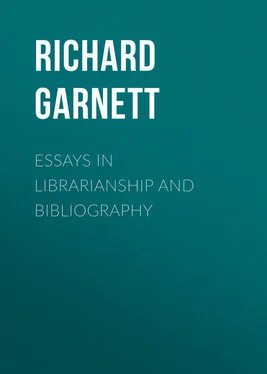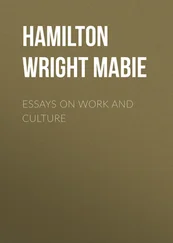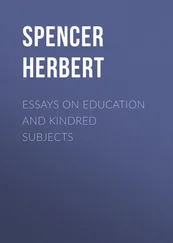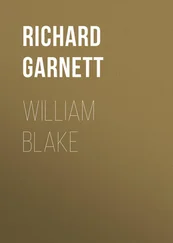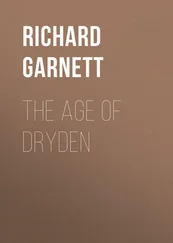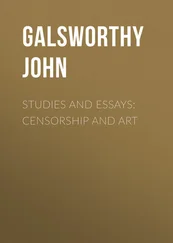Richard Garnett - Essays in Librarianship and Bibliography
Здесь есть возможность читать онлайн «Richard Garnett - Essays in Librarianship and Bibliography» — ознакомительный отрывок электронной книги совершенно бесплатно, а после прочтения отрывка купить полную версию. В некоторых случаях можно слушать аудио, скачать через торрент в формате fb2 и присутствует краткое содержание. Жанр: foreign_antique, foreign_prose, на английском языке. Описание произведения, (предисловие) а так же отзывы посетителей доступны на портале библиотеки ЛибКат.
- Название:Essays in Librarianship and Bibliography
- Автор:
- Жанр:
- Год:неизвестен
- ISBN:нет данных
- Рейтинг книги:4 / 5. Голосов: 1
-
Избранное:Добавить в избранное
- Отзывы:
-
Ваша оценка:
- 80
- 1
- 2
- 3
- 4
- 5
Essays in Librarianship and Bibliography: краткое содержание, описание и аннотация
Предлагаем к чтению аннотацию, описание, краткое содержание или предисловие (зависит от того, что написал сам автор книги «Essays in Librarianship and Bibliography»). Если вы не нашли необходимую информацию о книге — напишите в комментариях, мы постараемся отыскать её.
Essays in Librarianship and Bibliography — читать онлайн ознакомительный отрывок
Ниже представлен текст книги, разбитый по страницам. Система сохранения места последней прочитанной страницы, позволяет с удобством читать онлайн бесплатно книгу «Essays in Librarianship and Bibliography», без необходимости каждый раз заново искать на чём Вы остановились. Поставьте закладку, и сможете в любой момент перейти на страницу, на которой закончили чтение.
Интервал:
Закладка:
I shall now proceed to take up some of the more interesting themes broached at the first meeting of the Association, time not allowing me to proceed further, and to remark upon the progress which may appear to have been made in the interval towards accomplishing the objects then indicated. I shall then venture some brief remarks on the library movement at the present day, as concerns public feeling and public sympathy in their effect on the status of librarianship as a profession. My observations must of course be very desultory and imperfect, for an adequate treatment of these subjects would absorb the entire time of the present meeting. I have also always felt that the President's address, though certainly an indispensable portion of our proceedings, is in one aspect ornamental, and that the real business of a meeting, apart from its legislative and administrative departments, is the reading of papers and the discussion to which these give rise. I hope that these discussions will be, like the Thames, "without o'erflowing, full." Overflow we must not. It will be a great satisfaction to me if, when the meeting is over, it should be found that everything written for it has been heard by it, and that nothing has been "taken as read."
The most important subject introduced at the Conference of 1877 was that of free libraries in small towns, but any remarks which I may offer on this will come more appropriately into a review of the progress which libraries are now making. Next in importance, perhaps, certainly in general interest, were the discussions on cataloguing. In this department I may congratulate the Association on material progress, to which its own labours have, in great measure, contributed. There is much more unanimity than there used to be respecting the principles on which catalogues should be made. Admirable catalogues have been issued, and continue to be kept up by the principal libraries throughout the country, and if now and then some very small and benighted library issues a catalogue whose naïvetés excite derision, such cases are very exceptional. Rules have been promulgated both here and in the United States which have met with general assent, and I do not anticipate that any material departure from them will be made. I only wish to say, as every librarian is naturally supposed to regard his own catalogue as a model, that I do not regard the British Museum Catalogue in this light so far as concerns libraries of average size and type. The requirements of large and small libraries are very different, and that may be quite right in one which would be quite wrong in another. I can, perhaps, scarcely express this difference more accurately than by remarking that while the catalogue of a small, and more especially of a popular, library, should be a finding catalogue, that of a large library representing all departments of literature must be to a great extent a literary catalogue. It is not meant merely to enable the reader to procure his book with the least possible delay, but also to present an epitome of the life-work of every author, and to assist the researches of the literary historian. Hence the explanation and justification of some points which have on specious grounds been objected to in the Museum Catalogue. It has been thought strange, for instance, that anonymous books of which the authorship is known – such as the first editions of the Waverley Novels – should not be entered under the names of the authors. Two excellent reasons may be given: because by so entering the book the character of the catalogue as a bibliographical record would be destroyed; and because by entering one description of anonymous books in one way and another in another, there would be an end to the uniformity of rule which is necessary to prevent a very extensive catalogue from getting into confusion. Another instance is the cataloguing of academical transactions and periodicals under the respective heads of Academies and Periodical Publications, which has been much criticised. It is quite true that the Quarterly Review can be found more easily under that head than under "Periodical Publications, London," but it is also true that the grouping of all academical and all periodical publications under these two great heads is invaluable to the bibliographer, the literary historian, and the statistician, who must be exceedingly thankful that the information of which they are in quest is presented to them in a concentrated form, instead of having to be sought for through an enormous catalogue. These observations do not in any way apply to libraries of an essentially popular character, and I merely make them by way of enforcing the proposition that the works of such libraries and those of national or university libraries are different, and that we must beware of a cast-iron uniformity of rule. There is yet another intermediate class of library, the comparatively small but highly select, such as college and club libraries, which will probably find it more advantageous to pursue an intermediate course, as I imagine they do, judging from the very excellent specimens of cataloguing for which we are indebted to some of them. And there is yet another class, the libraries of the collectors of exceedingly rare literatures, such as the Chatsworth Library, Mr. Huth's, and Mr. Locker-Lampson's. In such catalogues minuteness of bibliographical detail is rightly carried to an extent uncalled for in great miscellaneous catalogues like that of the British Museum, and which, it is to be hoped, may never be attempted there, for if it were it would disorganise the establishment. It is not the business of librarians as public servants to provide recondite bibliographical luxuries. These things are excellent, but they lie in the department of specialists and amateurs, who may be expected to cultivate it in the future as they have done in the past. The limits of public and private enterprise must be kept distinct.
Another question of cataloguing which occupied the attention of the Conference of 1877 was the important one of subject catalogues. In this I am able to announce the most satisfactory progress. In the face of the mass of information continually pouring in, the world has become alive to the importance of condensing, distributing, and rendering generally available the information which it possesses already. Three very remarkable achievements of this kind may be noticed. The first is Poole's Index to Periodicals, with its continuation, a work so invaluable that we now wonder how we could have existed without it, but so laborious that we could hardly have hoped to see it exist at all, especially considering that it is an achievement of co-operative cataloguing. In illustration of the want it supplies, I may mention that it has been found necessary at the British Museum to reproduce the preliminary tables by photography in a number of copies, the originals having been worn to pieces. The next work I shall mention is the subject index to the modern books acquired by the British Museum since 1880 – two bulky volumes, prepared in non-official time, with the greatest zeal and devotion, by the superintendent of the Reading Room, Mr. Fortescue, and continued by him to the present time. They are simply invaluable, and it is only to be regretted that they have been issued at too high a price to be generally available to the public. This is not the case with the third publication which I have to mention – the classed catalogue issued by Mr. Swan Sonnenschein, the utility of which is very generally known. A cognate feature of the times is the great comparative attention now paid to indexing, which is sometimes carried to lengths almost ludicrous. The author of a work of information who does not give an index is sure to be called over the coals, and with reason, for how else is the reviewer to pick out the plums unless he actually reads the book? I am not sure that this extreme facilitation of knowledge is in all respects a good thing, but it is at present a necessary thing, and correlated with that prevalence of abridged histories and biographies which it is easy to criticise, but which has at least two good points – the evidence it affords of the existence of a healthy appetite for information among a large reading class, and the fact that information is thus diffused among many to whom it would have been inaccessible under other circumstances.
Читать дальшеИнтервал:
Закладка:
Похожие книги на «Essays in Librarianship and Bibliography»
Представляем Вашему вниманию похожие книги на «Essays in Librarianship and Bibliography» списком для выбора. Мы отобрали схожую по названию и смыслу литературу в надежде предоставить читателям больше вариантов отыскать новые, интересные, ещё непрочитанные произведения.
Обсуждение, отзывы о книге «Essays in Librarianship and Bibliography» и просто собственные мнения читателей. Оставьте ваши комментарии, напишите, что Вы думаете о произведении, его смысле или главных героях. Укажите что конкретно понравилось, а что нет, и почему Вы так считаете.
